Key takeaways:
- Mobile learning offers flexibility and integration into everyday life, enhancing the learning experience.
- Interactive tools, like quizzes and collaborative platforms, promote engagement and make study sessions enjoyable.
- Self-care and organization are crucial for effective mobile learning, balancing productivity with well-being.
- Future advancements may include personalized learning experiences and augmented reality to enrich education.
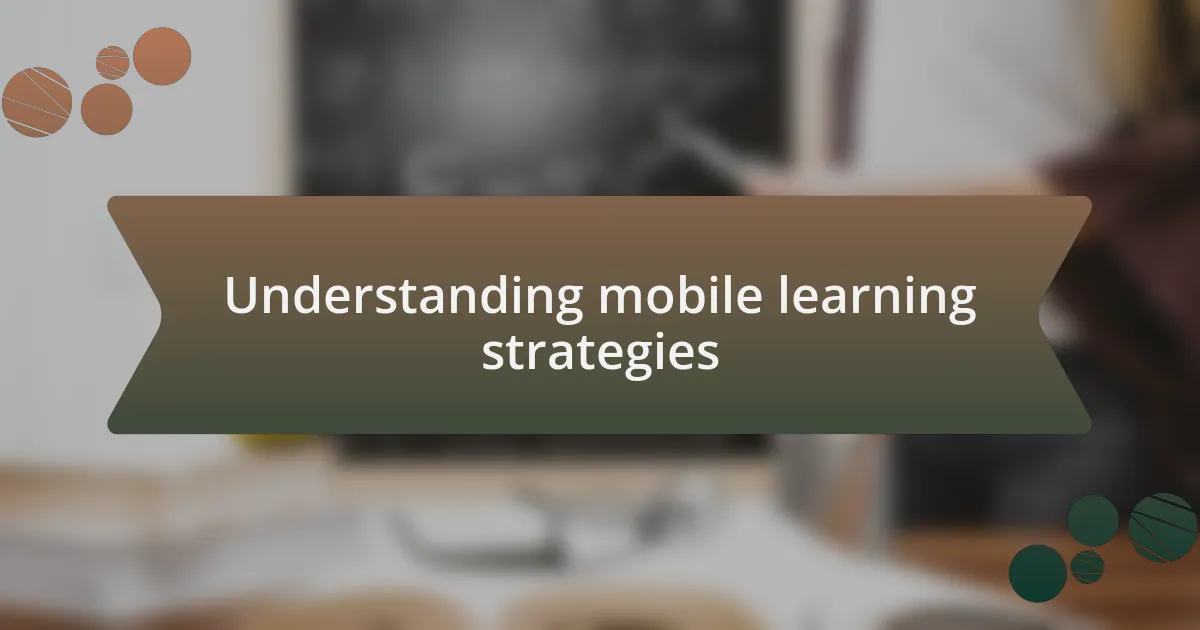
Understanding mobile learning strategies
Mobile learning strategies revolve around using portable devices to facilitate education anytime and anywhere. I remember the first time I tried utilizing my smartphone for learning on the go. The experience was liberating; I could access courses, watch instructional videos, and even participate in discussions during my commute. Isn’t it fascinating how such small devices can open up a world of learning?
One key aspect of mobile learning is its flexibility. I’ve often found myself reviewing study materials during a lunch break or listening to podcasts that expand my knowledge while exercising. This adaptability promotes a seamless integration of learning into everyday life. Have you ever thought about how that flexibility can enhance your learning experience?
Effective mobile learning strategies also include leveraging interactive elements like quizzes and discussion forums. I recall engaging with a particularly challenging subject through apps that permitted real-time feedback and peer interaction. This kind of dynamic learning not only made the process more enjoyable, but it also reinforced my understanding. How could interactive features transform your approach to studying?
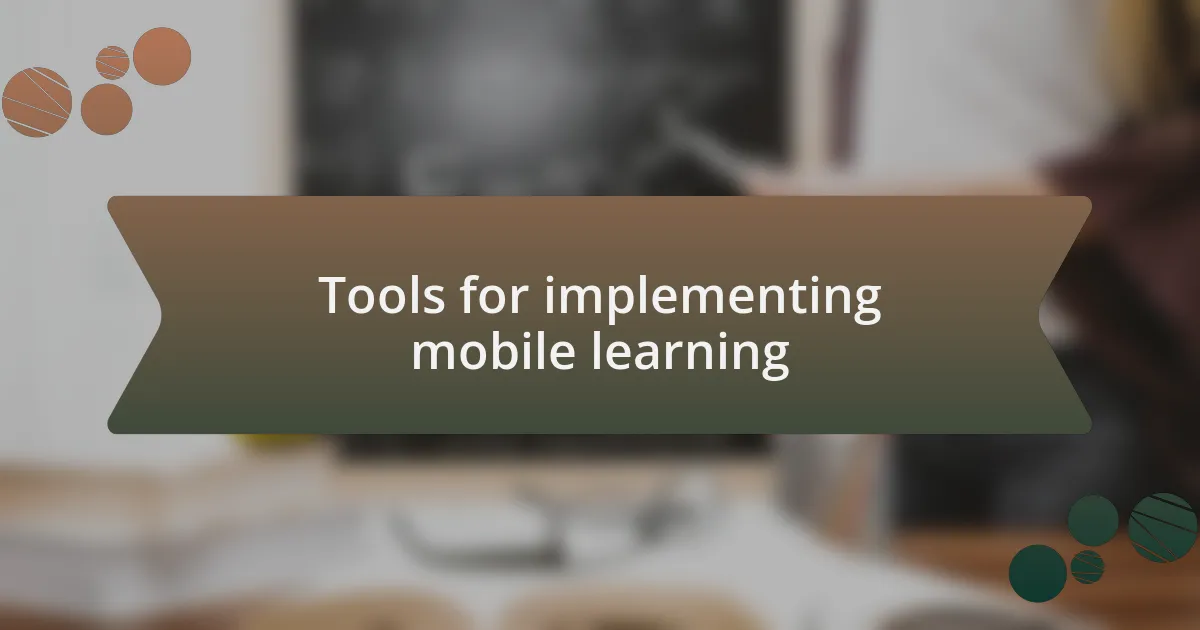
Tools for implementing mobile learning
When it comes to implementing mobile learning, a solid selection of tools is essential. I’ve found that applications like Quizlet and Kahoot are invaluable for creating interactive study aids. The thrill of engaging with friends in a quiz competition can turn mundane review sessions into something lively and enjoyable. Have you ever experienced the rush of real-time feedback while competing with peers?
I also recommend platforms like Google Classroom or Microsoft Teams, which facilitate collaboration among learners. One time, I was part of a group project where we used these tools to share resources and communicate effortlessly, regardless of our locations. This seamless interaction made teamwork feel natural, even when we were miles apart. Don’t you think that such connectivity enhances the learning experience?
Of course, the choice of tools should align with educational goals. For example, I once utilized mobile apps focused on gamified learning to help my younger sibling grasp math concepts. Watching him engage with the material through games instead of traditional worksheets was eye-opening. Isn’t it powerful how the right tools can spark genuine enthusiasm for learning?
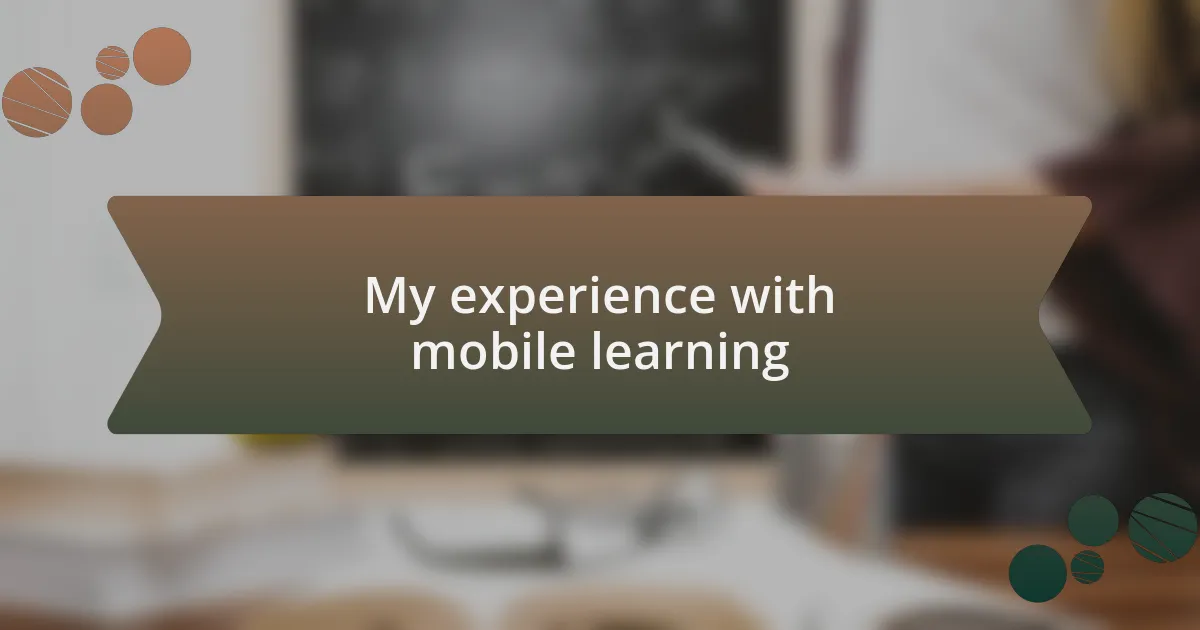
My experience with mobile learning
During my journey with mobile learning, I discovered that it’s not just about the technology, but how it enhances personal engagement. I vividly remember sitting in a café, engrossed in an online tutorial for a subject I struggled with for years. The flexibility of learning at my own pace, while sipping coffee, transformed education from a chore into an enjoyable experience. Have you ever felt that spark of excitement when understanding something that previously felt unreachable?
I’ve also experimented with social media as a learning tool. Once, I joined a group dedicated to my field of interest on a mobile platform, where we frequently shared articles and insights. It was refreshing to learn through discussions and real-world applications, rather than through one-dimensional textbooks. Can you recall a time when a conversation helped clarify a difficult concept for you?
Mobile learning, for me, truly came alive during my preparation for exams. I used my smartphone for flashcards during my daily commute. That small investment of time not only maximized my productivity but also helped me retain information better. Reflecting on that experience, I realize how meaningful it is to harness everyday moments for learning. Doesn’t it make you rethink how you use your time?
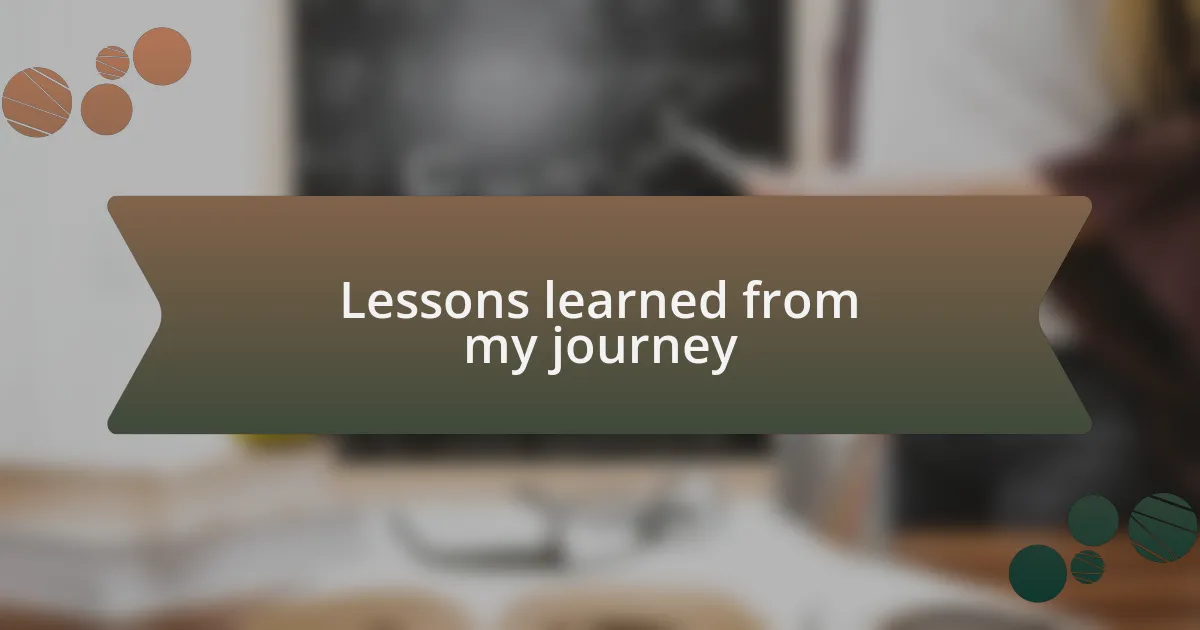
Lessons learned from my journey
In embracing mobile learning, I’ve learned how crucial it is to stay organized. One day, overwhelmed with resources scattered across various apps, I took the time to streamline my digital tools. This minor adjustment drastically improved my efficiency and made learning more fluid. Have you ever sat down to study only to realize you’re drowning in a sea of information?
I’ve also recognized the power of community support in my learning process. I distinctly remember reaching out to a mentor through a messaging app when I hit a roadblock with a particularly challenging topic. Their encouragement not only guided me through, but it also reinforced the notion that learning doesn’t have to be a solitary journey. Have you found that a simple connection can foster your understanding in a complex field?
Ultimately, I discovered the importance of self-care alongside mobile learning strategies. After a grueling week of study, I made a conscious choice to take breaks, even during learning sessions. I vividly remember stepping outside for a walk; the fresh air revitalized my mind and allowed me to return to my studies with renewed focus. How often do we neglect our own well-being in pursuit of knowledge? This experience taught me that balance is vital for sustained learning.
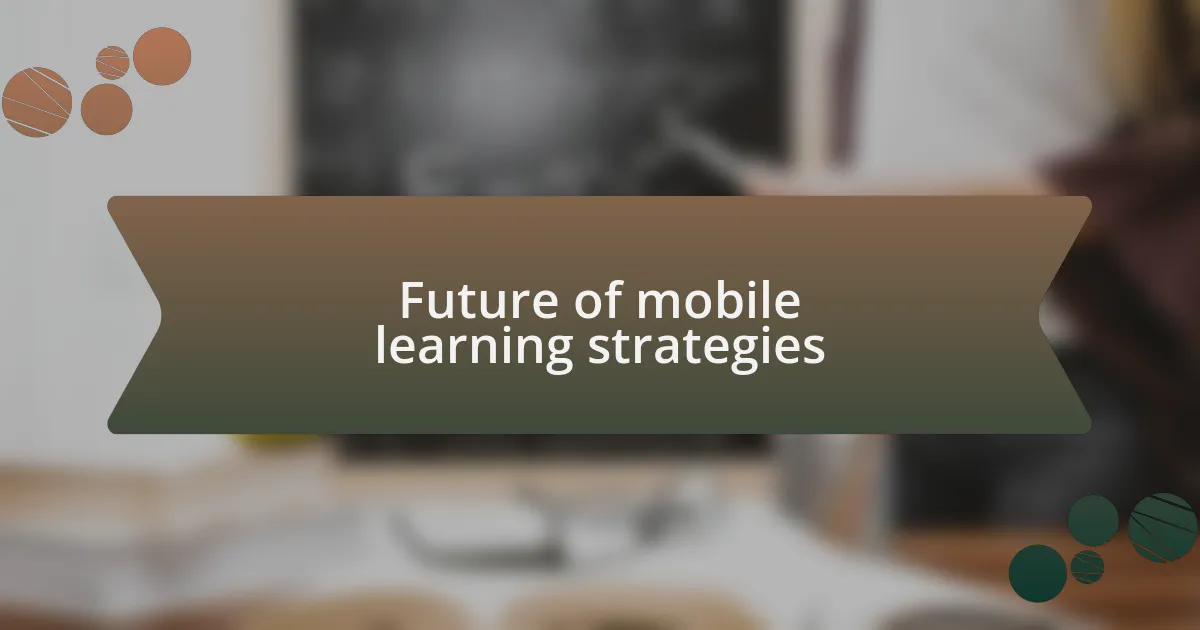
Future of mobile learning strategies
As I look towards the future of mobile learning strategies, one thing is abundantly clear: personalization will pave the way. Imagine a learning app that tailors content based on your unique learning pace and preferences. I once used an adaptive learning platform that reshaped my study sessions, offering insights into my strengths and weaknesses. Isn’t it exciting to think that the future may offer even more customized experiences?
Additionally, the integration of augmented reality (AR) into mobile learning could redefine how we interact with content. I vividly recall using an AR app that brought a complex science concept to life, making it feel tangible and easier to grasp. What if future learners can interact with full-scale simulations from their mobile devices? The possibilities are endless and invigorating, lending a dynamic edge to traditional learning.
Finally, I foresee a greater emphasis on collaboration through mobile learning. During my own journey, the ability to share ideas in real-time with fellow learners was invaluable. Reflecting on this, I can’t help but wonder how emerging tools will further enable group projects and peer support, no matter where people are located. How might this shift in learning dynamics foster a more inclusive and supportive educational environment?